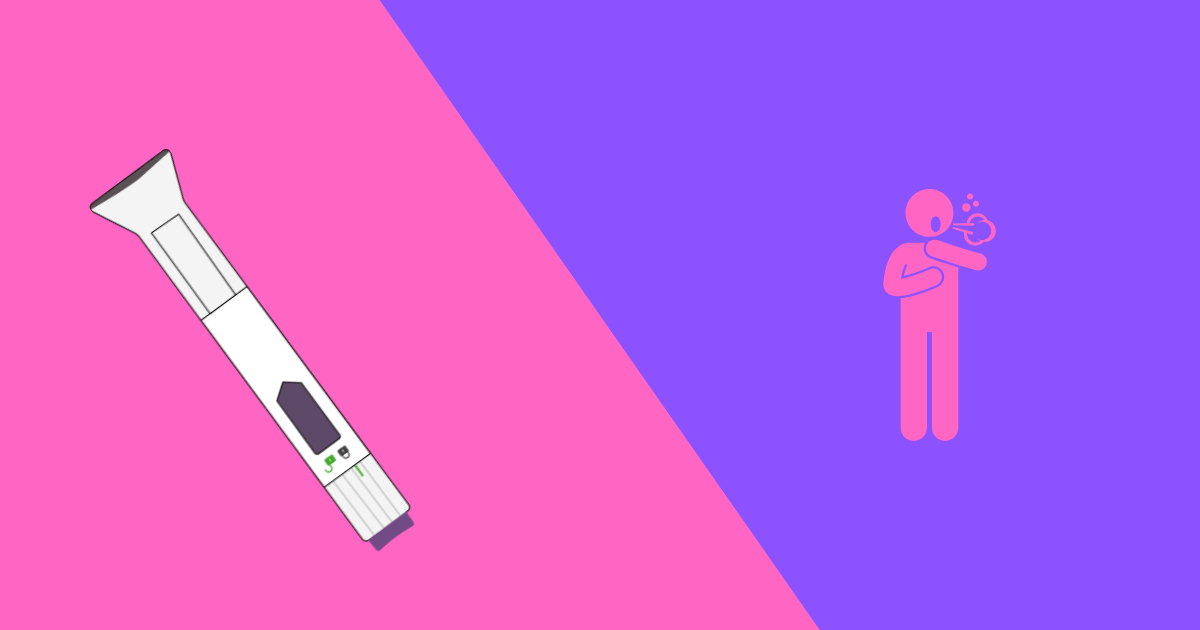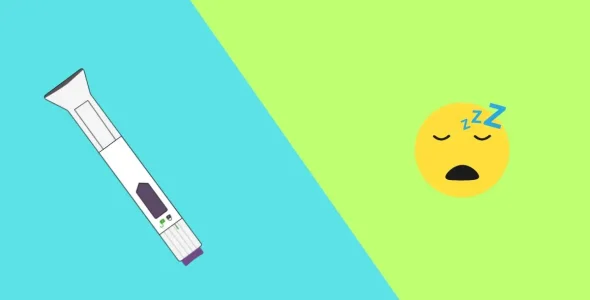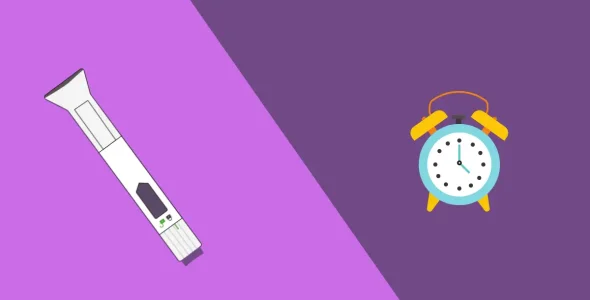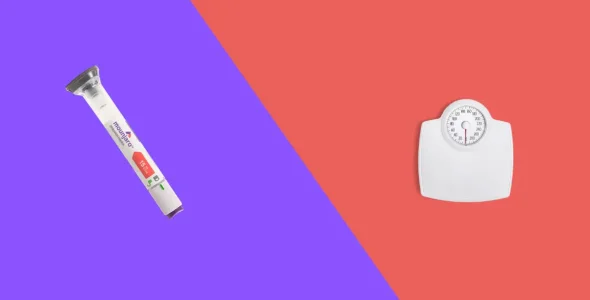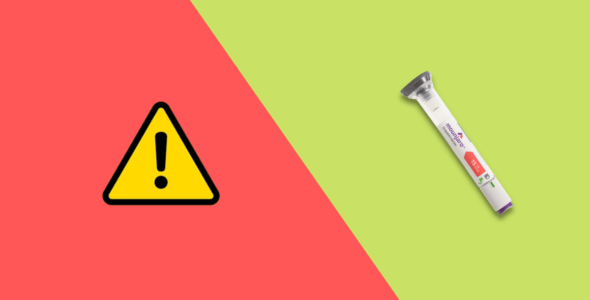Sulfur burps on Mounjaro: Causes, prevention, and treatment
Mounjaro causes sulfur burps; here’s why and how to stop them naturally.
Key highlights
- Burps with a rotten egg smell are caused by hydrogen sulfide gas in the body.
- Mounjaro slows digestion, allowing food to sit longer and ferment, leading to gas buildup.
- Sulfur burps typically appear within the first few weeks of starting the medication or increasing the dose and usually resolve within 6-8 weeks.
- Sulfur burps are manageable. Most people adjust over time with the right diet, habits, and medical guidance.
Mounjaro is a prescription medication that activates both glucagon-like peptide-1 (GLP-1) and glucose-dependent insulinotropic polypeptide (GIP) receptors. It’s FDA-approved to help control blood sugar in adults with type 2 diabetes mellitus, but it’s also known to cause significant weight loss in many patients.
Mounjaro offers incredible benefits, helping many people manage their blood sugar and lose weight. Along with those benefits, there’s one surprising, and often embarrassing, side effect that some users experience: sulfur burps.
These burps can smell like rotten eggs because of a gas called hydrogen sulfide. While they’re not harmful, they can be annoying and gross. These smelly, rotten egg-like burps can catch you off guard, but you’re not alone.
The good news is they’re not a big deal. Still, it’s normal to want them gone. Here’s what you need to know about Mounjaro and egg burps, and how you might be able to stop them.
Experiencing sulfur burps on Mounjaro? Learn why it’s happening, how to prevent them, and when to see a doctor.
Understanding Mounjaro for weight loss
Mounjaro (tirzepatide) is a prescription injectable medication approved by the U.S. FDA in 2022 to help control blood sugar levels in people with type 2 diabetes. It is also prescribed off-label for weight loss in people with obesity or overweight when combined with diet and exercise.
Tirzepatide, also known by the brand names Mounjaro and Zepbound, is an FDA-approved dual-action GLP-1/GIP receptor agonist made by Eli Lilly.
Mounjaro is part of the GLP-1 drug family, but it’s unique because it mimics two gut hormones: glucagon-like peptide-1 (GLP-1) and glucose-dependent insulinotropic polypeptide (GIP) receptor agonist.
This dual action may make Mounjaro more effective for weight loss and blood glucose control in comparison with other GLP-1 medications that target only one receptor (GLP-1), like Ozempic and Wegovy.
Mounjaro works by activating GLP-1 and GIP receptors in the brain and the pancreas. This helps regulate insulin after meals, controls blood sugar, slows stomach emptying, and reduces appetite, which leads to eating less and consequently losing weight.
Also, Mounjaro lowers HbA1c, a measure of long-term blood sugar control, by making the body more insulin-sensitive. This means cells take in sugar from the blood faster, fewer calories in, and less fat is stored. It also reduces hunger and cravings by releasing hormones that make you feel full. By being more insulin-sensitive, it burns fat and stops fat from building up in cells.
Studies show that Mounjaro can help you lose significant body fat and weight, and boost metabolism and fat burning. It also improves cholesterol, blood sugar levels, and reduces hunger and food cravings.
In a study that compared Ozempic vs Mounjaro, Mounjaro (in doses of 5 mg, 10 mg, and 15 mg) worked more effectively than the 1 mg dose of Ozempic. Mounjaro improved blood sugar control and helped people lose more weight. For example, people taking the 15 mg dose of Mounjaro lost nearly twice as much weight as those on Ozempic.
A study found that over 18 months, people with type 2 diabetes who took 15 mg of tirzepatide (the active ingredient in Mounjaro) lost an average of 18% of their body weight, compared to 12.4% for those taking 2.4 mg of semaglutide.
What are sulfur burps?
Sulfur burps are burps that smell like rotten eggs. This happens because of a gas called hydrogen sulphide (H2S).
They can be caused by slow digestion, eating foods high in sulfur (eggs, broccoli, or garlic), or changes in gut bacteria. When food sits too long in the stomach or certain bacteria break it down, more H2S gas can build up and cause these smelly burps.
Sulfur burps aren’t listed as a common side effect of Mounjaro, but some people do experience them. This might be due to how Mounjaro affects your stomach and digestion.
One way Mounjaro helps you feel full is by slowing down how quickly your stomach empties. When food stays in your stomach longer, it can lead to more hydrogen sulfide (H2S) gas, which causes those rotten egg burps.
There’s also a theory that Mounjaro may change the balance of bacteria in your gut, which could be related as well.
The odor explained
Mounjaro can cause sulfur burps because of a gas called hydrogen sulfide that builds up in your body. This gas has a strong “rotten egg” smell, which is why the burps can be nasty.
Many people notice sulfur burps after starting Mounjaro, an injection for type 2 diabetes. The same medicine, tirzepatide, is also approved for weight loss under the name Zepbound.
These burps aren’t just caused by Mounjaro. They can also happen with other medicines, certain foods, or digestive conditions that affect how your stomach works.
Burping (belching) explained
Burping, also known as eructation, is a known side effect of many GLP-1 receptor agonists, including Mounjaro, Wegovy, Ozempic (semaglutide), and Saxenda (liraglutide). These medicines slow down how quickly food leaves your stomach. When food stays in the stomach longer, it can start to ferment and produce excess gas, including hydrogen sulfide, the gas that causes sulfur-smelling burps.
People taking a GLP-1 drug were more likely to have gases from gut bacteria. This supports the idea that slower digestion from these drugs can lead to more gas, which usually comes out as burping or passing gas.
How long do sulfur burps last?
It’s different for everyone, but here’s a general pattern many people notice:
- First week: Sulfur burps can start as soon as you start Mounjaro or increase your dose.
- Weeks 2 to 3: This is usually when the burps are the worst.
- Weeks 3 to 4: Most people start to feel some relief.
- By weeks 6 to 8: The burps often go away or become mild and manageable.
If you increase your dose again, the burps and other stomach issues may come back, but they usually settle down after a few weeks.
Why does Mounjaro cause sulfur burps?
Mounjaro can slow down digestion, which means food stays in your stomach longer. This can lead to fermentation and the buildup of hydrogen sulfide gas, which causes burps that smell like rotten eggs. Certain foods and gut bacteria may also play a role.
Here are a few reasons GI side effects, including burping, are common with Mounjaro:
Delayed gastric emptying
Mounjaro, like other GLP-1 meds, slows down how fast food moves through your stomach. This helps you feel full longer, which is great for hunger and cravings.
Since digestion is slower, food can sit in your stomach and intestines longer. This gives bacteria more time to break it down and can lead to gas and sulfur burps.
When food, especially food types like eggs, meat, dairy, and certain veggies, sits in your gut too long, it can produce a gas called hydrogen sulfide. That’s what causes the eggy smell in your burps.
It’s not dangerous, and it doesn’t mean Mounjaro isn’t working. It’s just a smelly side effect of slower digestion. The good news is that there are ways to manage and reduce these sulfur burps so they don’t linger.
Dietary factors
Some foods can increase gas and make sulfur burps worse. High protein and sulfur-rich foods like eggs, red meat, and cruciferous veggies (broccoli, cabbage, cauliflower) are common causes. Cutting back on these may help reduce symptoms.
Gut bacteria imbalance
Mounjaro may shift the balance of bacteria in your gut, which can affect how your body digests food. Some bacteria produce more gas, especially hydrogen sulfide, which leads to sulfur burps. Everyone’s gut microbiome is different, so this side effect can vary from person to person.
Hydration levels
Not drinking enough water can slow down digestion and make gas worse. Drinking water regularly throughout the day helps food move through your system more smoothly and can reduce sulfur burps. Aim to drink water often.
Pre-existing GI conditions
If you have digestive issues like irritable bowel syndrome (IBS), small intestinal bacterial overgrowth (SIBO), gastroesophageal reflux disease (GERD), or other gut conditions, you may be more likely to experience stronger symptoms like sulfur burps. These conditions can increase gas production and make side effects from Mounjaro worse.
Are sulfur burps a sign that the medication is working?
No, sulfur burps are not a sign that your medication is working. They are a side effect caused by slower digestion, which happens with GLP-1 drugs like Mounjaro. They aren’t related to how well the medicine is helping with blood sugar or weight loss.
Some people get sulfur burps, and others don’t. It doesn’t mean the drug is working better or worse. Burps can also be caused by other things, like your diet, digestive issues like IBS or acid reflux, and certain habits or lifestyle choices.
How to stop sulfur burps from Mounjaro?
Sulfur burps are usually harmless and don’t mean that Mounjaro isn’t working or that it’s unsafe.
However, if you’re tired of dealing with them, here are some simple tips to help you get rid of sulfur burps while taking Mounjaro.
Dietary adjustments
The main goal is to adjust your diet while on Mounjaro. Foods that have a lot of sulfur can cause more smelly gas, so it may help to cut back on them.
Foods to avoid:
- High-fat and greasy foods: Fried foods, fatty meats, creamy sauces, and too much oil.
- Sulfur-rich foods: Cruciferous veggies (broccoli, cabbage, cauliflower, brussels sprouts), onions and garlic, eggs (especially undercooked or in large amounts), and red meats (for some people)
- Highly processed and sugary foods: Sodas, candies, pastries, as they can upset your gut bacteria.
- Carbonated drinks: Like soda, sparkling water, and beer, which add gas.
- Spicy foods: These can irritate your stomach.
What to eat instead:
- Lean proteins: Chicken breast, turkey, fish, tofu, egg whites, and low-fat dairy, which can make digestion easier.
- Gentle carbs: White rice, plain toast, applesauce, ripe bananas.
- Low-fiber fruits and veggies (at first): Try cooked carrots, zucchini, peeled potatoes; skip raw or high-fiber veggies if they upset your stomach.
Helpful habits:
- Drink plenty of water: It keeps digestion moving and helps prevent constipation.
- Eat smaller and frequent meals: Less pressure on your stomach.
- Chew food well and eat slowly: It helps with digestion and reduces swallowed air.
- Don’t eat right before bed: Give your stomach time to empty.
- Avoid overeating: Mounjaro helps you feel full, listen to those signals.
- Regular physical activity: Light exercise can help your digestion and stop gas from building up in your stomach.
Research shows that fiber may help lower H2S gas levels, while eating a lot of protein without enough fiber can make them go up. A healthy diet should include both protein and fiber.
It’s also a good idea to avoid alcohol while taking Mounjaro, since it can make stomach side effects worse.
Natural remedies
Herbal teas like ginger, peppermint, and fennel can help calm your stomach and reduce gas. They’re gentle, safe, and can be used while taking Mounjaro.
Probiotics are “good” bacteria that help keep your gut healthy. They may help control H2S gas, which is made when your body digests protein and sulfur-rich foods. Since too much H2S can cause smelly burps or gas, balancing it might help reduce those symptoms. Talk to your doctor before taking probiotics, as they’re not right for everyone.
Some people find that natural remedies like apple cider vinegar help with digestion and reduce gas. A small amount mixed with water before meals might ease symptoms. However, it doesn’t work for everyone, and it’s best to check with your doctor before trying it, especially if you have stomach issues.
Over-the-counter (OTC) remedies
If changing your diet and exercising don’t help enough, some over-the-counter medicines might reduce your sulfur burps. These can give extra relief when other efforts aren’t working.
- Simethicone (Gas-X): These are anti-gas medicines that can quickly relieve bloating. They usually start working in about 30 minutes and are generally safe to use with Mounjaro.
- Bismuth Subsalicylate (Pepto-Bismol): It helps cut down the rotten egg smell. It’s safe to use once in a while, but don’t use it for a long time without checking with your doctor.
Supplements
- Digestive enzymes: Some products have enzymes like amylase, lipase, and protease that help break down food better and reduce gas. They can be helpful if certain foods seem to cause your symptoms.
- Alpha-galactosidase: This enzyme helps your body digest complex sugars found in beans, lentils, and some vegetables. If these foods give you gas, taking the enzyme before meals may help prevent it.
- Antacids: They can help if your sulfur burps come with heartburn or a burning feeling in your chest. They work by lowering stomach acid and may give quick relief.
- Activated charcoal: This can help absorb gas in the stomach and may reduce sulfur burps. But use it with caution, and don’t take it close to other medications, as it can affect how they work.
- Ginger (ginger tea or chews): It is well known for helping with nausea and soothing digestion. It’s a natural option that may also help reduce gas and sulfur burps.
- Peppermint oil (especially in capsule form): This can help relax the muscles in your digestive system and reduce gas. It may ease bloating and help with sulfur burps, too.
Hydration and fiber balance
Staying well-hydrated is important for keeping your digestion moving smoothly. Drink plenty of water throughout the day, and try to avoid carbonated drinks like soda or sparkling water, which can add extra gas to your stomach.
Also, aim for a healthy balance of fiber in your diet. Too little fiber can slow digestion even more, but too much too quickly can cause more gas. Slowly increase gentle fiber sources like cooked vegetables, oats, or applesauce to support digestion without making symptoms worse.
Monitor trigger foods
Keep a simple food diary to track what you eat and when sulfur burps happen. This can help you identify specific foods like eggs, garlic, or broccoli that may be triggering the problem. Once you know your triggers, it’s easier to avoid or limit them and reduce symptoms.
Regular and gentle physical activity
Light, regular movement like walking, stretching, or yoga can help your digestion work better and prevent gas from building up. Even a short walk after meals can make a big difference in reducing sulfur burps.
Stress management
Stress can affect how your digestive system works and may make symptoms like sulfur burps worse. Try calming activities like deep breathing, meditation, gentle exercise, or anything else that helps you relax. Managing stress can support better digestion and reduce discomfort.
Quit smoking
Smoking can cause you to swallow more air, which adds extra gas to your stomach and may lead to more burping. Quitting smoking not only helps reduce sulfur burps but also improves your overall health.
Avoid lying down immediately after eating
Try to stay upright for at least 1 to 2 hours after meals. Lying down too soon can slow digestion and cause gas to build up. Staying upright helps gravity do its job and keeps food moving through your system more smoothly.
Adjust medication timing
Sometimes, taking Mounjaro with food (if your healthcare professional approves) may help reduce stomach-related side effects like sulfur burps. Always check with your healthcare provider before changing how or when you take your medication.
When to see a doctor
Sulfur burps can be pretty gross, but they’re usually not a big deal.
However, if your burping or other gastrointestinal issues happen more than three days a week and are getting in the way of your daily life, it’s a good idea to talk to your doctor. In some cases, too much burping can be linked to other issues like acid reflux, IBS, or even anxiety.
Also, if you have other symptoms along with the burps, like fever or vomiting, that are strong or don’t go away, you should see your healthcare provider.
Persistent or worsening symptoms
If your sulfur burps are severe, don’t get better with home remedies, or start affecting your daily life, it’s time to check in with your doctor. Also, if the burps come with other symptoms like stomach pain, vomiting, or fever, don’t ignore them; get medical advice.
Other concerning symptoms
In addition to ongoing or severe sulfur burps, contact your healthcare provider if you notice any of the following:
- Severe abdominal pain or cramping
- Frequent vomiting or diarrhea
- Signs of dehydration (like dry mouth, dizziness, or dark urine)
- Unexplained weight loss beyond what’s expected with Mounjaro
- Blood in your stool or vomit
- Trouble swallowing or breathing
These could be signs of a more serious issue that needs medical attention.
Suspicion of other medical conditions
While rare, sulfur burps could be a sign of more serious digestive problems in some cases. One possible condition is gastroparesis, where the stomach empties very slowly. This can sometimes happen with GLP-1 medications like Mounjaro and may need medical treatment.
Persistent sulfur burps might also point to other underlying issues such as acid reflux, irritable bowel syndrome (IBS), or infections in the digestive tract. If symptoms don’t improve or seem to be getting worse, it’s important to get checked by your doctor to rule out any serious conditions.
FAQs
How long do sulfur burps last on Mounjaro?
Sulfur burps on Mounjaro usually last a few days to a few weeks as your body gets used to the medication. For most people, the symptom goes away on its own, but if it continues or gets worse, talk to your doctor.
Can switching injection sites reduce sulfur burps?
There’s no strong medical proof that switching injection sites reduces sulfur burps. However, some people say they feel better when they change where they inject, like from the stomach to the thigh. It might be worth trying to see if it helps you.
Are sulfur burps a sign of Mounjaro working?
Sulfur burps aren’t a sign that Mounjaro is working, but they can happen because the medicine slows down digestion. This slower digestion is how Mounjaro helps with weight loss and blood sugar control. While the burps aren’t a good sign by themselves, they can be part of how the medicine works in your body.
Conclusion
Sulfur burps are a common, but harmless, side effect of Mounjaro, usually caused by slower digestion. While they can be unpleasant, they’re not a sign that something is wrong.
With simple changes to your diet, eating habits, and lifestyle, you can often reduce or even prevent sulfur burps.
Start small, make gradual adjustments, and don’t hesitate to reach out to your doctor for extra guidance. Many people find that these side effects improve over time as their bodies adjust.
Mounjaro is a powerful medication for managing blood sugar and supporting weight loss, and with a little care and support, you can stay on track and feel your best.
Always work with your healthcare team to make your weight loss journey a safe and successful one.
